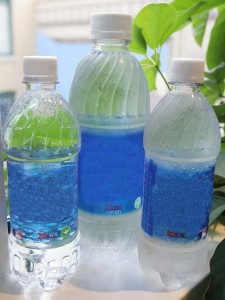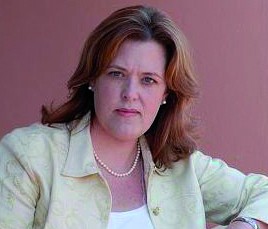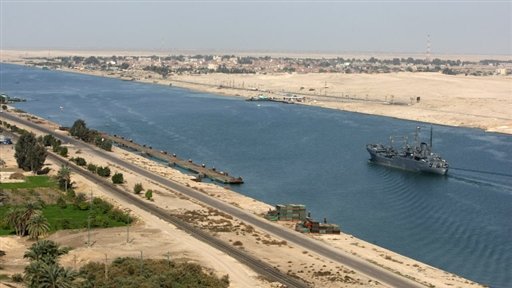
(AFP Photo)
By Dahlia Kholaif, Basma Tharwat and Emad Hamdi
Companies in Egypt are racing to meet the rising demand for mineral water in Upper Egypt in the wake of a barge, carrying 500 tonnes of phosphate, sinking in the river Nile on Wednesday in the Qena governorate.
Managing Director of Nahl Water Company Mamdouh Al-Attar said measures are being taken to increase stocks of raw materials and shift focus to the market of Upper Egypt, where he said demand is expected to surge amidst limited access to drinkable water, as well as people’s fear from drinking tap water.
“We have already started measures to meet an expected shortage, from raising stocks and productions, as well as transported supplies to this region,” Al-Attar said, refusing to elaborate with figures.
Ruling out the possibility of mineral water bottles increasing amidst the crisis, Al-Attar said plants are operating in Upper Egypt, including one that belongs to the Petroleum Authority, which won’t be able to drive up production.
Ayman Fathi, chairman of Golden Rich, the exclusive agent of Siwa, Aqua Siwa and Aman Siwa mineral water brands, said the company has raised their quotas by 10% in the company’s six warehouses located in governorates of Minya, Qena, Aswan and Sohag.
Fathi denied any intentions to increase the prices, adding that, prior to the accident, the company distributed 1.4m bottles of mineral water monthly in Upper Egypt.
On its behalf, Aqua Tap mineral water will increase production by 5%, which will be pumped to the southern regions, according to Samir El-Brengy, Managing Director at Arab for Water Treatment & Bottling Company. He also added that the surge in demand won’t be restricted to these governorates as there is wide concern about the safety of water.
Officials have played down the impact of the phosphate spill in the Nile, saying it is not soluble and therefore won’t cause poisoning.
Head of the Food Division at the Cairo Chamber of Commerce, Ahmed Yehia, said demand on mineral water slightly climbed, expecting it to pick up further amid lack of reassurance by government officials to refute warnings against drinking public water.




